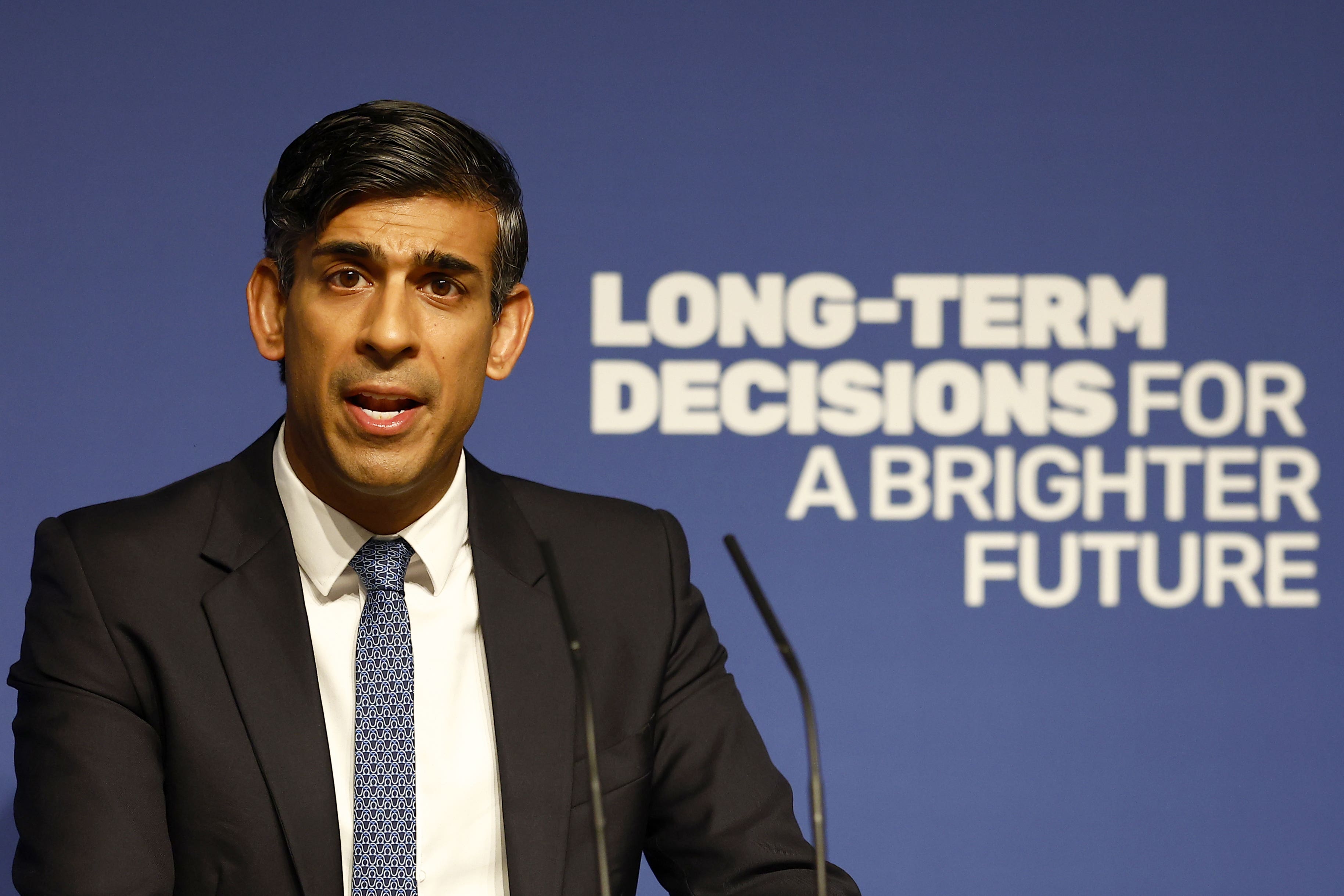Accusations of more Tory sleaze could stick to Rishi Sunak
Editorial: The Conservatives insist they do not have a ‘cultural issue’ with sleaze. The public could be forgiven for thinking otherwise

Gillian Keegan, the education secretary, argues that Conservative MPs do not have a “cultural issue” after a week in which two more of them lost the whip following allegations of bullying and rape respectively. Ms Keegan insists: “I see individual incidents which are all investigated as such.”
The public would be forgiven for thinking otherwise. Former ministers Peter Bone, who was given a six-week Commons suspension for bullying and sexual misconduct against a staff member, and Crispin Blunt, who was arrested on suspicion of rape and possession of controlled substances but is “confident” he will not be charged, are among six Tories currently suspended from the parliamentary party. Another, who has not been named, was arrested last year on suspicion of sexual assault and rape but remains a Tory MP. He has not been charged.
David Warburton, who was accused of harassing three women and posing next to cocaine but denied “malicious allegations”, was suspended by the Conservative Party and then resigned; Chris Pincher, the former deputy chief whip, who drunkenly groped two men, was also suspended and subsequently quit as an MP. Others also jumped before they were pushed, including Neil Parish, who watched porn in the Commons chamber. Imran Ahmad Khan resigned following his conviction for the sexual assault of a 15-year-old boy. There have been other allegations of misbehaviour: Owen Paterson stepped down after breaking Commons rules on lobbying.
The current parliament, which began in 2019, is on course to break records for the number of MPs thrown out of their parties. At the latest count, there are 16 independent MPs, more than there are Liberal Democrats despite the party’s four by-election gains. Not all of the suspended MPs are Tories: seven Labour MPs have also lost the whip. Not all of them are accused of personal misbehaviour: they include Jeremy Corbyn and Diane Abbott, whose statements were judged unacceptable by the party leadership.
One possible explanation for the increase is that victims of bullying and sexual harassment are more willing to come forward following the belated introduction of an independent complaints and grievance scheme at Westminster. If so, that would be welcome. However, there are still justified complaints that the process takes too long.
Some of those who have faced allegations, such as Mr Bone and Mr Pincher, were appointed as ministers by Boris Johnson (in Mr Pincher’s case when the then prime minister was aware of previous claims about his personal conduct). That is hardly a surprise given Mr Johnson’s lax attitude to the rules.
Rishi Sunak should make it clear that he will not tolerate misbehaviour by his MPs and will sweep the stables clean. After promising “integrity, professionalism and accountability at every level” on the day he became prime minister, he was true to his word when he ensured the departure of his deputy Dominic Raab after bullying complaints and Tory chair Nadhim Zahawi after revelations in The Independent about his tax affairs.
But there is more work to be done to fulfil Mr Sunak’s pledge. Even after the introduction of the independent complaints scheme, the instinct of political parties and their whips is too often to put the party interest before that of the complainant. In Mr Bone’s case, the victim withdrew his complaint at one point after the Tory party stonewalled for three years. Such obstructionism has probably deterred other victims from coming forward.
Despite what Ms Keegan said, there does seem to be a “cultural problem” in Mr Sunak’s party and he would be wise to tackle it. The lengthening list of Tories who have either left parliament or who are under investigation is an unhappy echo of the sleaze allegations that engulfed John Major’s 1992-97 government. He inadvertently made matters worse by promising his administration would go “back to basics” by taking a more moral approach based on decency and respect for the law. It was not meant to refer to personal behaviour but was interpreted as such amid a string of resignations by his MPs and ministers, leaving the Tories open to the charge of hypocrisy.
“Tory sleaze” added to a picture of an exhausted government running out of steam after a long period in power, and ended in Tony Blair’s 1997 landslide. This is ominous for Mr Sunak; the latest allegations against Tory MPs might now contribute to a similar end-of-days feeling as the public tire of what they perceive as a contaminated party.



Join our commenting forum
Join thought-provoking conversations, follow other Independent readers and see their replies
Comments